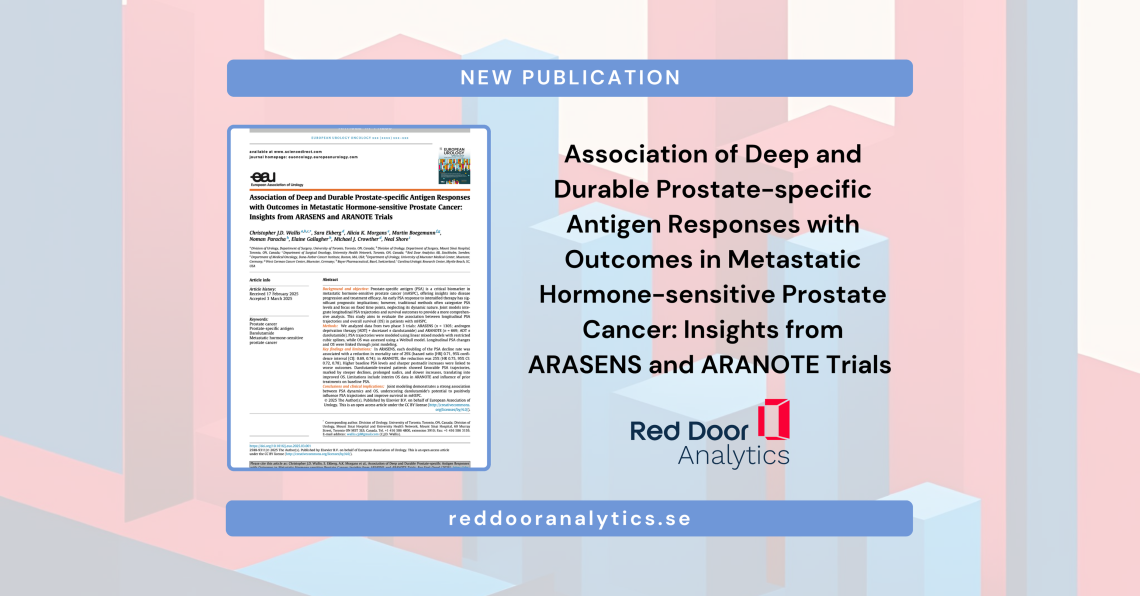
In our latest publication, we used joint models of longitudinal and survival data to study the association between PSA trajectories over time and overall survival in patients with metastatic hormone-sensitive prostate cancer. Previous studies often focus on a single, time-fixed PSA measurement, overlooking how PSA changes over time. By using joint models, we were able to estimate the impact of different PSA trajectories on survival. We found that a strong decline in PSA was associated with reduced mortality. Specifically, each doubling of the decline rate was associated with a 29% lower risk of death.
Three questions to Sara
What was the most interesting part of this project for you?
I really enjoy working with methods that bring out the full potential of data. By modeling the entire PSA trajectory over time, we gained a much deeper understanding of how PSA relates to survival. It’s satisfying to see how modern statistical approaches can help provide clinically meaningful answers and ultimately support better decisions for patients.
What was the main advantage of using joint models instead of simpler methods?
Joint models allow us to link longitudinal biomarker data with survival in a statistically coherent way, accounting for individual variation over time and informative dropout – the fact that patients who die stop contributing biomarker data. This leads to more accurate and clinically meaningful estimates. In prostate cancer, where PSA is a key biomarker that evolves differently across patients, this approach provides a more realistic understanding of its impact on outcomes.
Do you have other applications in mind where these methods could be applicable?
Absolutely! Joint models are a powerful tool whenever a biomarker or clinical measure is tracked over time and related to patient outcomes. They’ve already been used in various contexts, such as kidney function, blood glucose, tumor size, and quality of life. I believe these methods are still underused in many research areas where they could add real value.
Reference
- Wallis CJD, Ekberg S, Morgans AK, Boegemann M, Paracha N, Gallagher E, Crowther MJ, Shore N. Association of Deep and Durable Prostate-specific Antigen Responses with Outcomes in Metastatic Hormone-sensitive Prostate Cancer: Insights from ARASENS and ARANOTE Trials. European Urology Oncology 2025; (in press).












